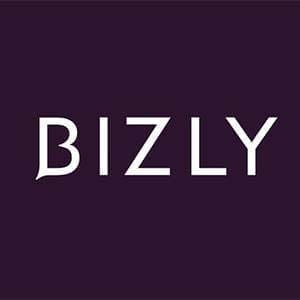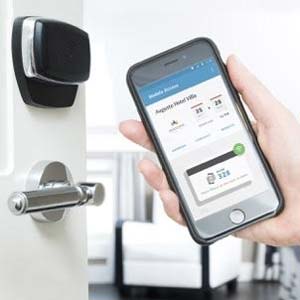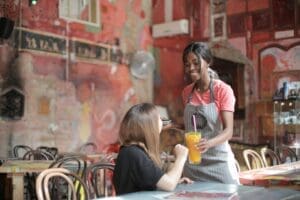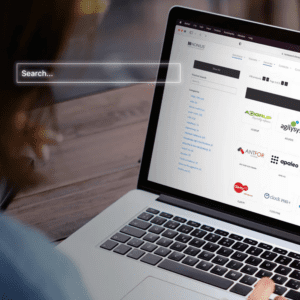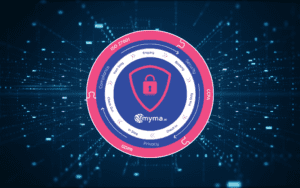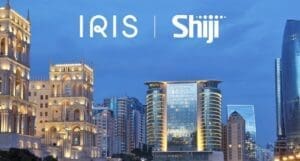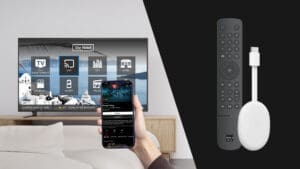 There is no doubt gamification has a prominent role in the online world. Look no further than the popularity of the recently launched Pokemon-Go. Beyond the Pokémon GO craze however, it is important for hoteliers to know that gamification may also be leveraged to increase engagement through marketing campaigns.
There is no doubt gamification has a prominent role in the online world. Look no further than the popularity of the recently launched Pokemon-Go. Beyond the Pokémon GO craze however, it is important for hoteliers to know that gamification may also be leveraged to increase engagement through marketing campaigns.
Increased customer engagement will generally lead to higher product and service utilisation, creating additional opportunities for guest satisfaction. OfferCraft is a company focussed on presenting information in a way that gets people’s attention. OfferCraft’s Founder and CEO Aron Ezra explains how they are doubling redemption rates by encouraging customers to want to engage in marketing campaigns:
“One of the very simple experiments that we did was with a hotel’s loyalty program. Instead of just handing a benefit to somebody, we encouraged the guest to play a game to win the benefit. For 90 days we drove the existing 8% marketing campaign redemption rate to 35% through gamification. This particular property was spending almost a million dollars a year on their marketing efforts.”
A range of marketing programs may be gamified through a variety of channels, including email, direct mail and text messages. Games may also be included in advertising, including in public spaces such as airports.
Gamification also leads to higher redemption of smaller rewards such as complimentary drinks or breakfast. For example, in a restaurant the server may say “Do you want to pay or play for breakfast today?” For conventions and events, properties may provide trivia or scavenger hunt games to win benefits rather than broadcasting free offers far and wide anonymously.
There is also a place for gamification back-of-house in employee education. Trivia games are very effective at getting people to remember information – retention rates are between 15 and 25% higher when information is delivered through trivia rather than one-way communication. Gamification is also effective in driving employee productivity through leaderboards, such as server sales during a breakfast shift.
Though not much has changed in principal since Coca-Cola generated the first coupon advertisement back in 1888, through advances in technology, gamification is now more accessible on personal devices at the customers’ convenience, enabling high levels of personalisation, engagement and therefore redemption. Ezra continues:
Let’s say you and I get an offer for a free drink with a purchase of an entrée at a restaurant. One guest uses theirs right away and the reward tracks the immediate redemption. However, let’s say you have a three day stay. The reward may provide you an identical offer the next day to try to get you to return again. Guest two also has a the three day stay, but didn’t use the reward on the first day, didn’t use it the second day, so the reward knows that there’s a very low likelihood of being redeemed – maybe you don’t like to drink? With gamification, it can actually change itself and offer an alternative. “Would you rather swap this out for points? Would you rather give it somebody else? Would you rather do these other things?” The software is collecting really powerful insights about how each individual guest is thinking.
Interactive rewards are capable of reporting back all information to the hotelier providing an increasingly rich profile of the guests. Information on other aspects of the guests’ stay may also be layered in, for example from the Spa. If the guest has been to the spa twice, there’s a pretty good chance the person likes the spa. By offering a spa reward, you can improve guest satisfaction and loyalty by making the reward offer skew to their specific interests.
Loss aversion also plays a role in increasing engagement as people are hard-wired to have a much stronger emotional reaction to loss than they do to winning.
So, let’s say you and I get a $30 discount off our next booking. The reward may be defined so that the reward will decrease, by say a dollar every hour – or by 10% per day so your reaction is “I’m losing money every minute I’m not booking this!”
Gamification can support the transformation of guests into evangelists through sharing that is trackable, increasing leads, increasing redemption, and collecting insights about how people think.
As attracting, converting and retaining guests becomes increasingly challenging, managers are looking for new ways of engaging customers. Through advances in consumer devices and communications, gamification may be an option for many hoteliers.






